Abidjan is one of Africa’s most dynamic cities. But can it swerve political instability?
They say anything can grow in Côte d’Ivoire – including big ideas. But some fear political uncertainty will stifle its development.
“Cocoa is a jewel,” says Ivorian chocolatier Axel Emmanuel Gbaou, holding up a pod that he has just split with his machete. Its glistening white pulp conceals the brown beans that have long been the economic bedrock of Côte d’Ivoire, the world’s biggest cocoa producer. Gbaou is guiding Monocle around a lush plantation just a few hours’ drive from Abidjan, the country’s former capital and largest city. All around us, coffee plants and lemon and guava trees shoot up from the fertile ground. “We have a saying in Côte d’Ivoire: everything can grow here.”

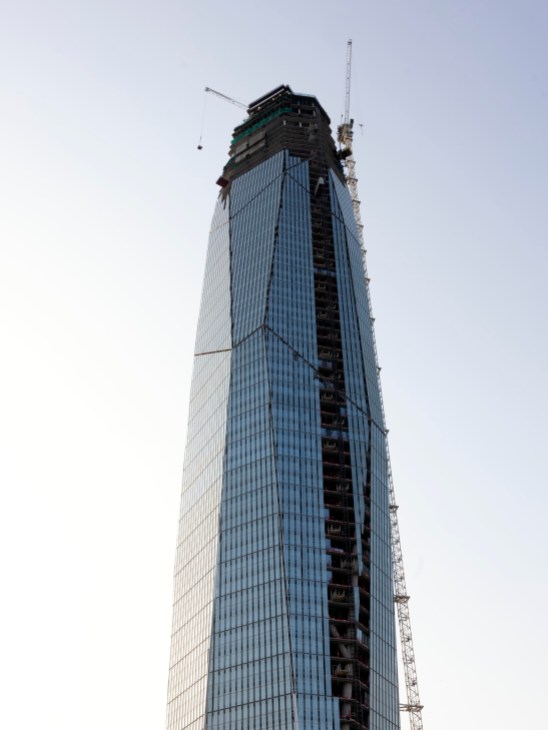
There’s a consensus among people who regularly travel into Abidjan that the best day to do so is Sunday because, as the usual bumper-to-bumper traffic relents, the air on the bridges across the Ébrié Lagoon fills with the aroma of toasted cocoa, rising up from the industrial zone. But the sweet smell of success isn’t just emanating from the city’s many roasting factories. Most people who are thriving in today’s Côte d’Ivoire are concentrated in this 6.3 million strong metropolis, where building sites are always within view and opportunities never far away. These days, Abidjan’s rooftop bars are packed, the champagne flows in its many nightclubs and property prices in some neighbourhoods rival those in Western European cities. In sectors from hospitality and construction to banking, a boom is under way that has transformed the country from a conflict-ridden basket case to an economic powerhouse, a beacon of dynamism in a part of the world not famed for such things. En route from Paris, the Business Class cabin on Monocle’s Air France flight stretches back 20 rows, with almost every seat taken. Abidjan is one of only 10 destinations served by the airline’s prestigious La Première service – a testament to the wealth flowing into the city.
Antoine Abou Khalil, the operations manager of boutique hotel La Maison Palmier in Abidjan’s leafy Cocody neighbourhood, was drawn here from Beirut by the promise of economic opportunity. Félix Houphouët-Boigny, the first post-independence president of Côte d’Ivoire, encouraged arrivals from Lebanon in the 1960s, hoping to draw some of the Levantine nation’s famed business acumen. During the 2006 war between Lebanon and Israel, the Ivorian government granted Lebanese citizens visa-free passage. Today, this 80,000-strong community, mostly Ivorian nationals of Lebanese descent, plays an outsized role in Abidjan’s booming economy. Marcory, a neighbourhood known as “Little Beirut”, is packed with hotels, shops and new apartment buildings. It is one of the city’s hottest areas for property development, with about a dozen major construction projects in progress.
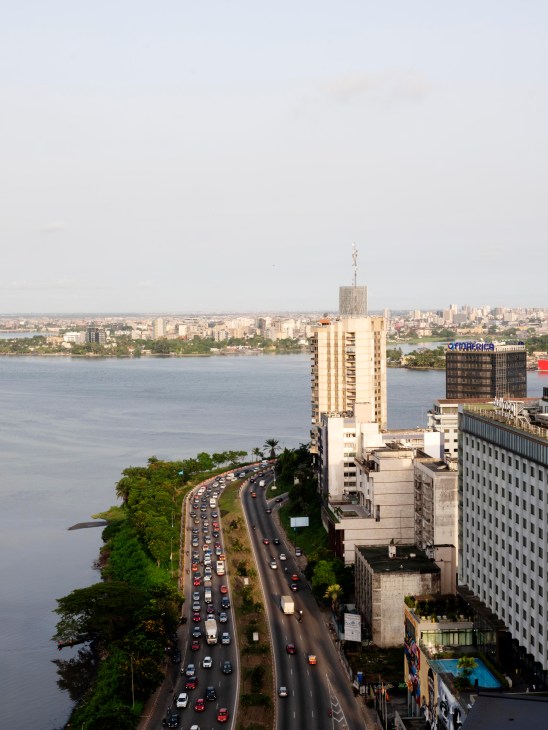
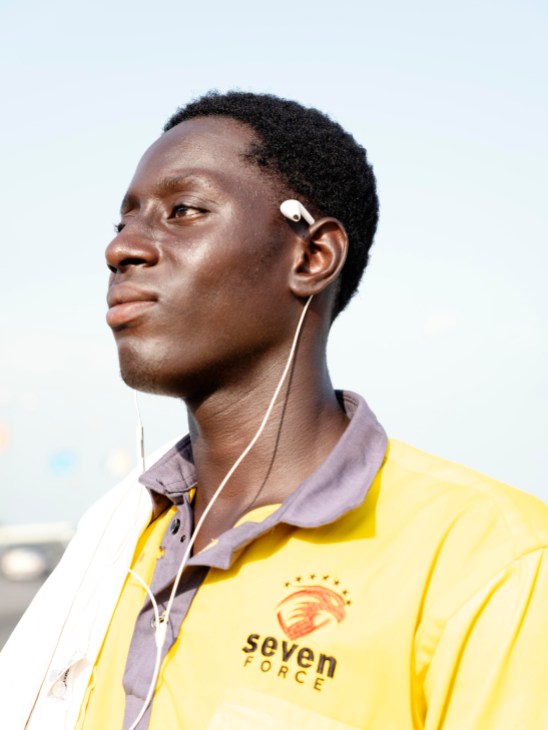

Among the businesses that are helping to reshape the Marcory skyline is French firm Architecturestudio, which opened an Abidjan office in 2023. Monocle hops aboard a buck hoist to tour the rooftop of one of its current projects, the Golden Tulip Akwaba hotel, which is under construction. “The rooftop pool here will offer the best view of the lagoon in all of Marcory – and perhaps all of Abidjan,” says Enzo Coicadain, a Frenchman who recently transferred to this city from Brussels.
A few blocks away, La Tour F, which is set to become Africa’s tallest skyscraper when it is completed next year, glimmers in the midday heat. The tower symbolises not only the construction sector’s growing clout but also Abidjan’s status as a regional powerhouse.
Côte d’Ivoire’s economic data tells a story of vertiginous ascent. From 2012 to 2019, the country’s real GDP growth averaged at more than 8 per cent per year and it has not dropped below 6 per cent since the height of the coronavirus pandemic. Unemployment stands at about 2 per cent (against a West African average of 12 per cent) and median income has nearly doubled, making the government’s aim to reach upper-middle-income status by 2030 seem increasingly achievable. Abidjan has become a magnet not only for foreign investors but also for members of the Ivorian diaspora returning home to start businesses – people known as “repats”. Buoyed by remarkable improvements in infrastructure and a tax-code overhaul that brought the country in line with international standards, Côte d’Ivoire rose 59 places up the World Bank’s “Ease of Doing Business” index between 2011 and 2020.
“The first factor that explains our upward trajectory is the sociopolitical stability that followed 2011,” says Stéphane Aka‑Anghui, the executive director of Côte d’Ivoire’s largest employers’ federation. That was the year when Alassane Ouattara became president. Aka Anghui, an eloquent, bespectacled former civil servant, believes that Ouattara, a former deputy director at the IMF, is largely responsible for the country’s economic revival. “We are neither Soviet nor Chinese,” he says. “But under President Ouattara, we have revived the practice of having a national business plan and that has paid off.”
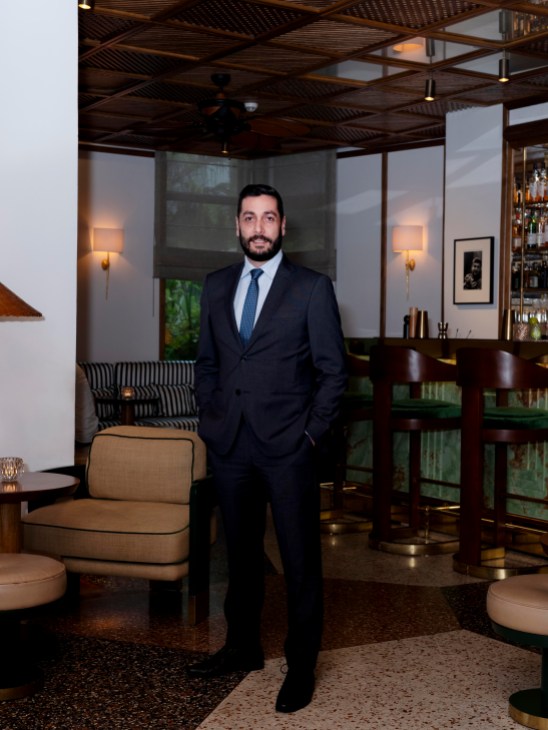
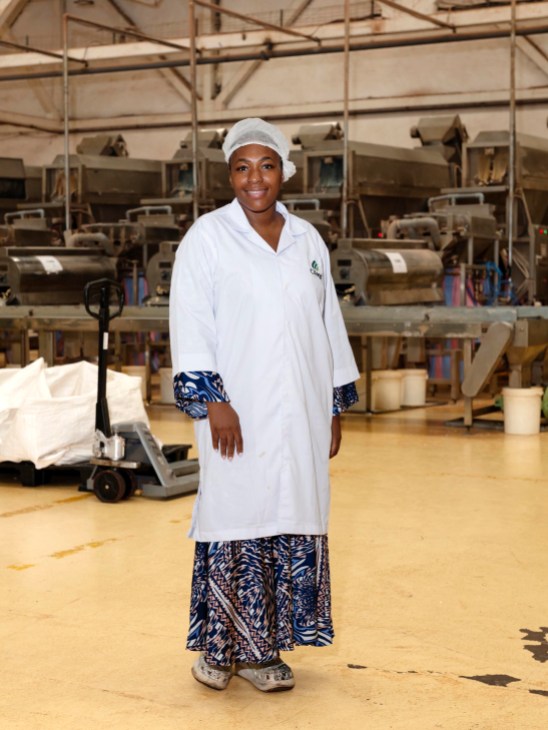
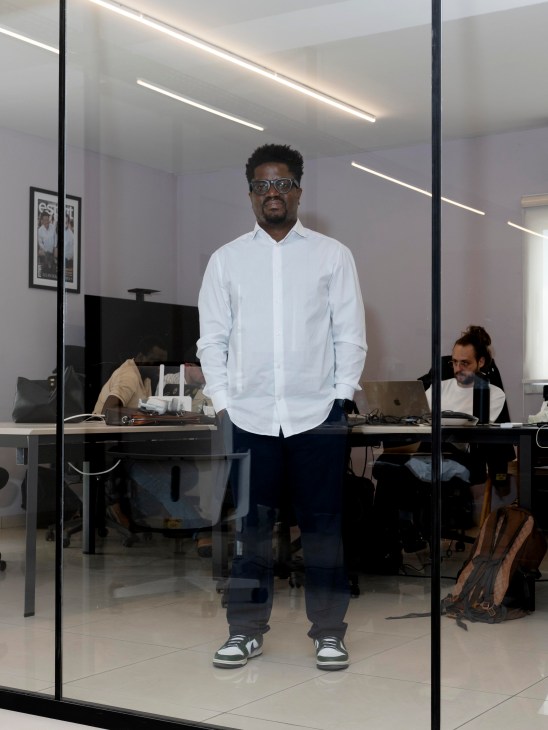
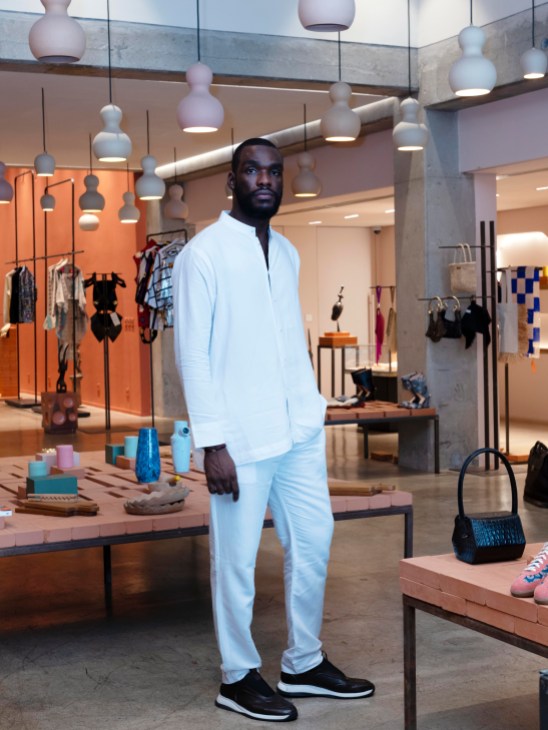
One sector where this policy is bearing fruit is in the processing of cashews. Côte d’Ivoire produces about 1.2 million tonnes of the nut per year, which represents about 40 per cent of the global supply. To make the most of this natural bounty, the government took out a $200m (€170m) World Bank loan in 2018 to fund tax rebates and priority access to cashew crops for businesses that process the nuts locally, adding tens of thousands of jobs to Côte d’Ivoire’s economy.
The career of Cynthia Niamoutié, who runs Cilagri Cajou, the largest Ivorian‑owned cashew-processing plant, is proof that the plan has worked. “We were producing 1,500 tonnes of processed nuts in 2019; this year we’re planning for 20,000,” she says, as she gives Monocle a tour of her factory, which employs more than 350 people and occupies warehouses near Abidjan’s port. From those at the steaming vats, where the processing of the raw cashews begins, to the sorting tables at which dexterous workers flick the nuts into containers at improbable speed, Niamoutié seems to know every employee by name, asking questions and providing instructions.
“Eight years ago, this place was just a parking lot,” says Niamoutié, whose father used it as a car administrative procedures site. Until 2018, three years after her father started Cilagri Cajou, Niamoutié lived in Houston, Texas. She is one of the many repats who have returned home over the past 10 years, seeking to play a part in their country’s economic resurgence.
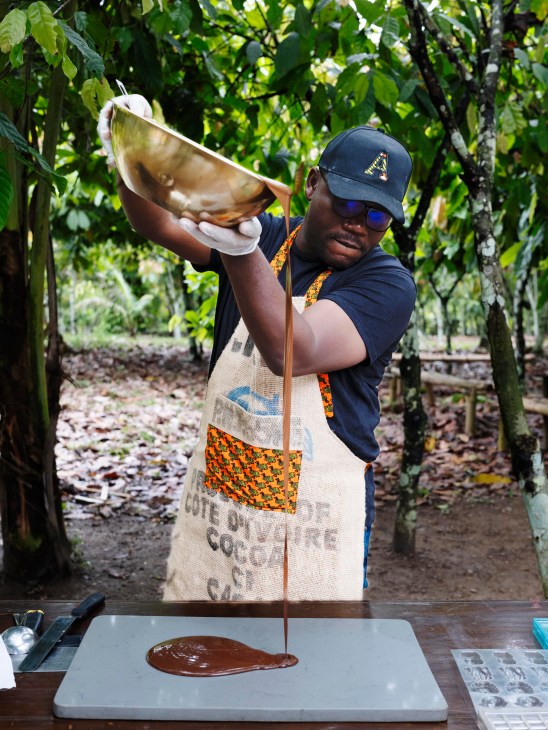
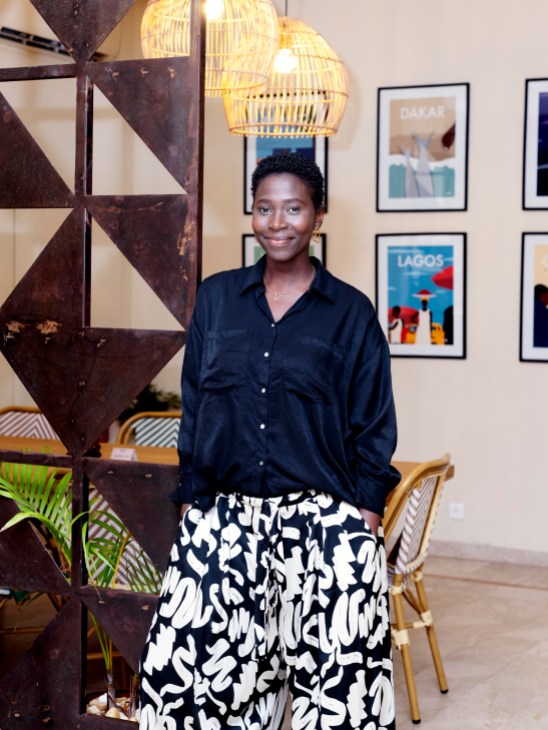
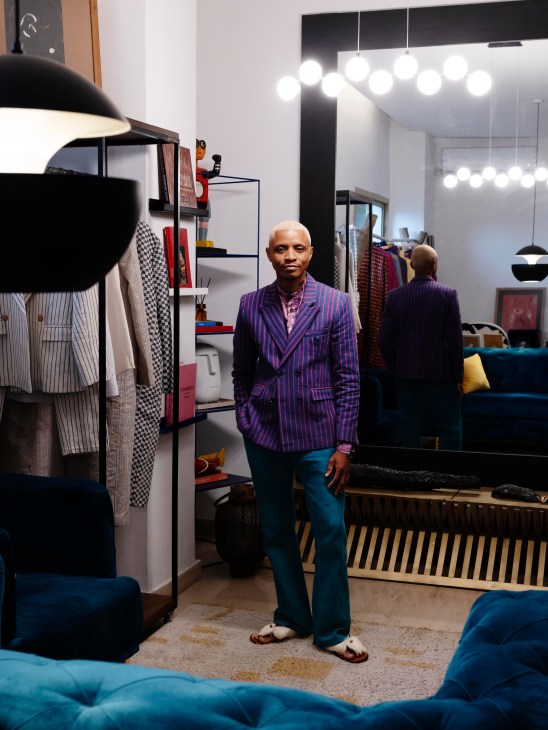
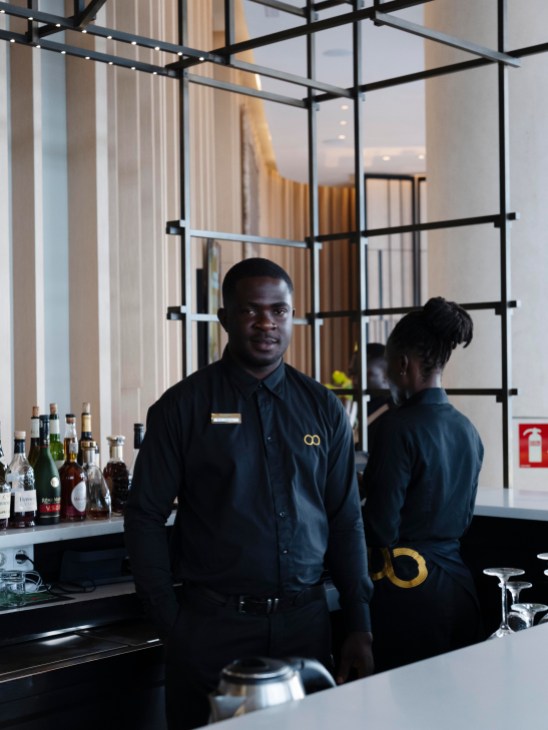
Though Monocle met many others like Niamoutié over the course of our four days in Abidjan, there is little hard data on repats. In a 2022 report on Ivorian migration, the Organisation for Economic Co-operation and Development stressed that it was “crucial that data-collection tools be deployed” to measure the phenomenon – which is significant enough that there is now an annual forum dedicated to repats, with hundreds of officials, investors and businesses attending. The patron of next year’s event, to be held in Abidjan in February, will be Côte d’Ivoire’s influential first lady, Dominique Ouattara.
Most of the repats who we speak to tell us that they returned after a stint working or studying in the US. That was the case for Régis Bamba, co-founder of Djamo, a digital bank that has become one of West Africa’s most successful fintech start-ups. Monocle meets Bamba at Djamo’s offices in the Zone 4 district of Marcory. “It was while I was studying computer science in the US that I connected with many other members of the African diaspora,” he says. “Since then I have felt that I want to build something for Africa.”

A native of Abidjan who first returned home in 2011 after the end of the second Ivorian civil war, Bamba wears a white shirt and Ray-Bans with built-in cameras, which ensure that no highlight of his day goes unshared with his social-media followers. “The banking-adoption rate [in Côte d’Ivoire] was only 20 per cent among the adult population not so long ago,” says Bamba in one of Djamo HQ’s glassy meeting rooms, each of which is named after an African capital city. “We thought that we could do something that works better.”
On a continent where a visit to a bank branch typically means long lines and tedious paperwork, many rely on mobile-payment systems such as M-Pesa and Orange Money for easy access to the financial system. Djamo gives users access to a card to pay online and offline, a transfer wallet, vaults to save money automatically and an investment account. In Abidjan, its customers draw directly from their bank accounts to pay the many street vendors who only take mobile money. Its convenience has made the app a huge hit and caught the eye of Silicon Valley incubator Y Combinator, which invested in 2021.
“You have stability in Côte d’Ivoire, which means that people aren’t afraid that their investment will just disappear,” says Bamba. “Jobs are being created, people here are consuming more stuff and they feel comfortable spending money.”
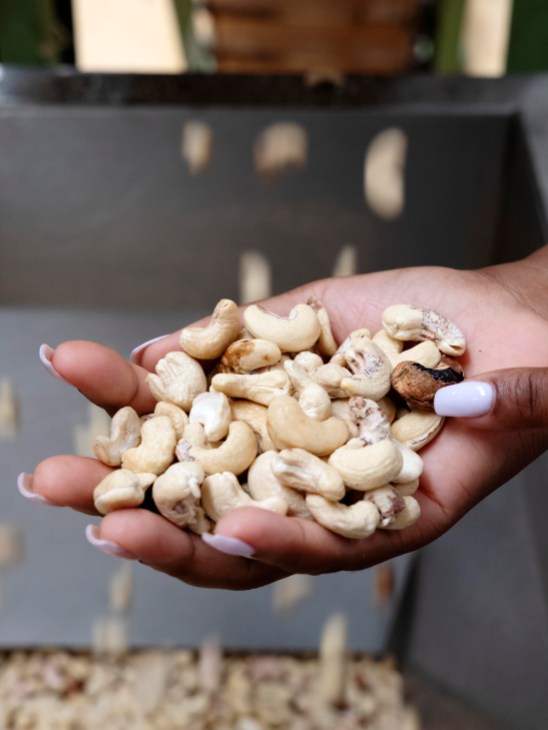
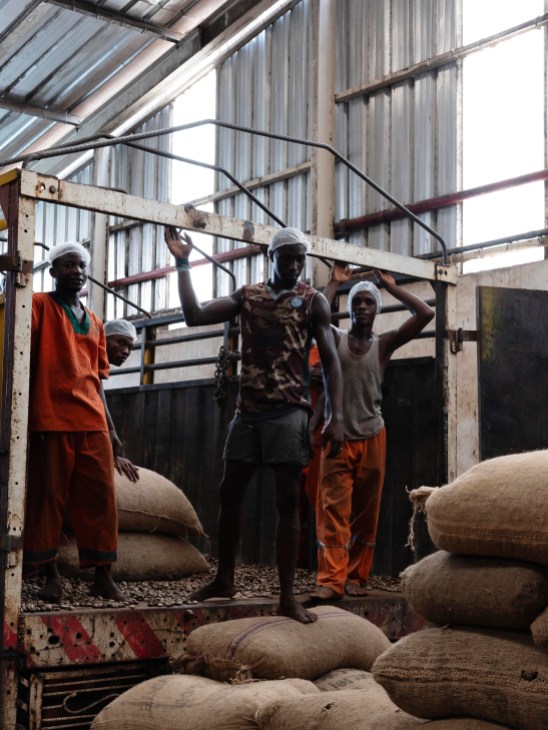

Nowhere is this economic dynamism more evident than at the Ivoire Trade Center (ITC), a vast commercial complex built in the shadow of the historic Hotel Ivoire. Its upper floors, completed in 2021, house the offices of multinational corporations such as Deloitte and PwC, while a shopping centre with pristine white floors welcomes well-heeled customers at ground level.
In the ITC’s food court, which is furnished with modernist-inspired pieces, the most popular destination is Africafé, a casual dining spot that offers speciality African coffee alongside comfort food from across the continent. “I wanted to adapt the classic European coffee shop to Africa,” says its founder, Djeneba Keita, who dreams of turning Africafé, which recently opened a second outpost in Abidjan, into “the African Starbucks”.
Monocle meets Keita over a lunch of chicken breast with attiéké, a cassava-pulp dish that is a staple of Ivorian cuisine. As we eat and chat, she gets up every so often to greet a regular or embrace an employee. She is originally from Mali and used to run a small catering business from her home. Five years after her launch in Abidjan, she is eyeing expansion abroad.
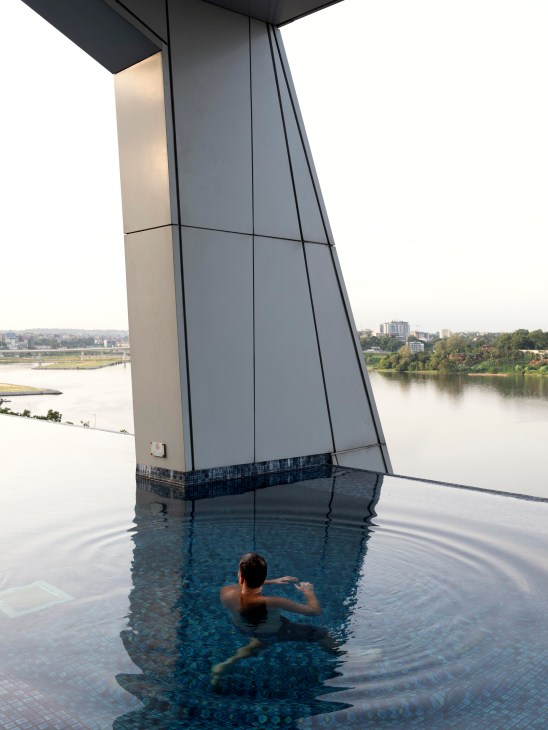
“The step now is how to scale it,” she says. “How do I get to Paris, New York and Tokyo?” Keita is building her success on a customer base that didn’t exist in Côte d’Ivoire 10 years ago – a growing class of professionals with the disposable income to dine out, as well as corporate types in need of a hip spot for informal meetings and presentations.
Next to Africafé is ABY Concept, another business catering to the same kind of clientele. Its terracotta-hued space, designed by Ivorian architect Issa Diabaté, showcases clothing by dozens of independent African labels. Some of the pieces on sale cost upwards of €1,000.
“Our founder, Cécile Fakhoury, is a gallery owner who supports African artists,” says Simon Zounin, its general manager. “Her idea was to create a shop that champions African designers.” Labels from Senegal to South Africa share the space with Ivorian designers such as Loza Maléombho and Lafalaise Dion, both of whom have dressed Beyoncé. The extraverted tailoring of Kente Gentlemen, which combines clean lines with bold patterns, is another standout. “I was inspired by a gift from my mother, who sent me tailored shirts that reminded me of home,” says the brand’s founder, Aristide Loua, who spent years in Utah before coming back to Abidjan and launching the clothing line.
Beyond ABY’s windows, the Hotel Ivoire stands as a symbol of a period of economic growth following independence that became known as the “Ivorian Miracle” – a second iteration of which is under way. But as October’s presidential election looms, could this new miracle be derailed by its principal architect? President Ouattara courted outrage in 2020 when he won a third term that opponents decried as unconstitutional. This year, as he ponders a fourth term, the courts have conveniently disqualified many potential challengers. There are fears that, should he decide to run again, a country that has endured two civil wars in the 21st century could see the return of political violence.

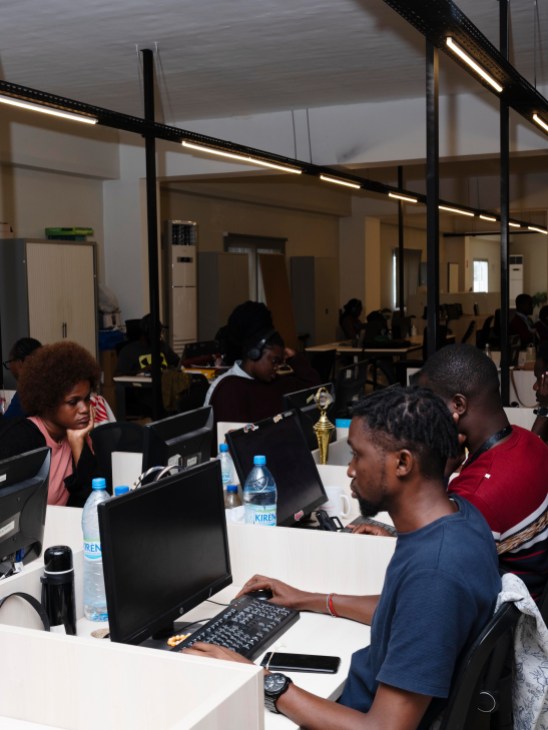
The world of business, however, seems desperate for Ouattara to stay on. Though Bloomfield Investment, a West African ratings agency headquartered in Abidjan, recently expressed concern about “revived risks” of sociopolitical unrest, it barely downgraded its outlook on Côte d’Ivoire as a safe bet for investors. With both foreign and domestic capital behind him, Ouattara believes that he can flout the rules with limited political fallout. And for a population still traumatised by civil conflict, democratic backsliding might not rankle as much amid one of the most remarkable economic success stories in the world.
However, with a fourth term, Ouattara, who is 83, would risk recreating the same destructive dynamic as Houphouët-Boigny, the architect of the original Ivorian Miracle. Côte d’Ivoire’s first president stayed in power for 33 years until his death in 1993, sowing the seeds for the following decades of political instability. If Ouattara’s refusal to depart the stage were to lead to a similar outcome, he would be compromising a legacy of peace and prosperity that any world leader would be proud of.
Côte d’Ivoire in numbers
Population: 31 million
GDP per capita: $2,709
Unemployment rate: 2.3 per cent
Year of independence: 1960
Capacity of largest stadium: 60,000
African Cup of Nations titles: 3
Merchandise processed by Abidjan’s port: 40 million tons
Five-star hotels in Abidjan: 8
Bridges over the Abidjan lagoon: 6
Full of beans
Côte d’Ivoire is the world’s leading producer of cocoa but locally made chocolate is surprisingly hard to come by. Enter Ivorian chocolatier Axel Emmanuel Gbaou, a former banker intent on getting more from his country’s most famous export.
“There are a million cocoa growers in Côte d’Ivoire but many of them are moving on [from the industry] because they have to live on €1 a day,” says Gbaou. “We need to pay them a fair share or we won’t have cocoa any more. Their expertise won’t make it to the next generation.”
Le Chocolatier Ivoirien has trained 2,000 women, mostly the wives of cocoa farmers, to work in the processing of cocoa. “I only buy toasted beans from the women I’ve trained,” says Gbaou. This premium local product has proved a hit on Ivorian social media. “Our turnover has more than doubled, nearly tripled, in recent years.”


